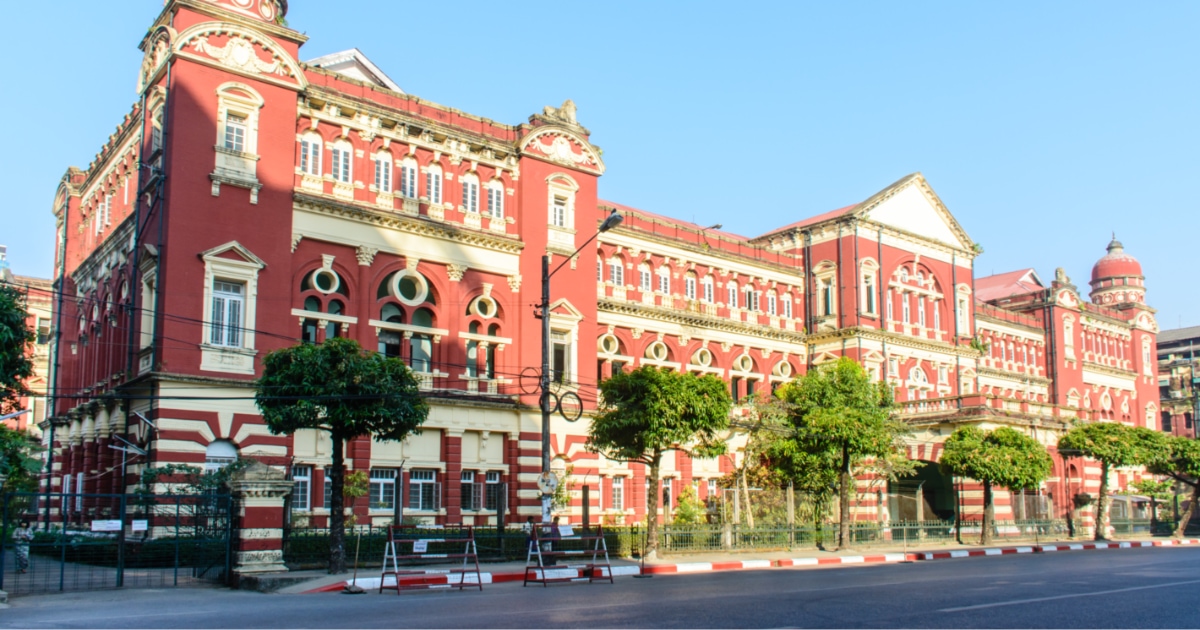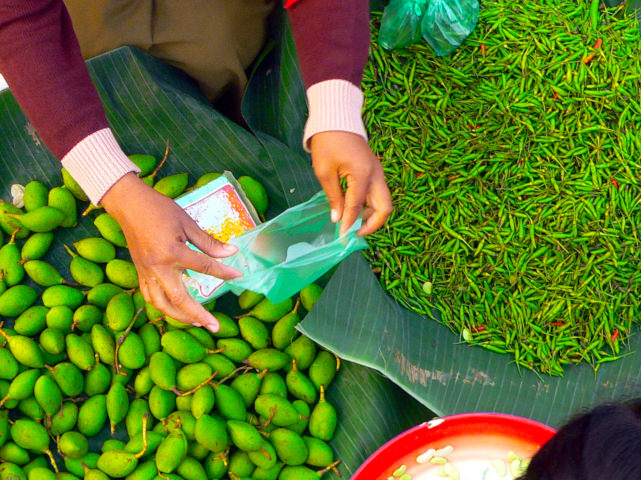World Bank forecasts drop in Myanmar’s economic growth
The World Bank has revised downwards its forecast for the Myanmar economy for the year ending 31 March 2016 citing recent flooding and a slowdown in new investments. According to the World Bank’s “East Asia and Pacific Economic Update” (“World Bank Report”), Myanmar’s economy grew at 8.5% in the year ended 31 March 2015, but is predicted to drop to 6.5% over the current fiscal year. According to the World Bank, the predicted slowdown was due in part to recent flooding which has inundated whole swathes of the country since July 2016 and destroyed more than a million acres of paddy fields, forcing the Government to halt rice exports, one of Myanmar’s key export commodities. According to the World Bank Report, inflation is expected to reach approximately 11.3% in the year ending 31 March 2016 “due to a combination of supply pressures caused by the floods and currency depreciation.” The depreciation of the Myanmar Kyat against the US dollar throughout 2015 has put additional strain on Myanmar’s economy. The World Bank Report also cites a fall-off in international investments for the decline in forecasted growth. The Myanmar Investment Commission authorized approximately US$8 billion of investment in the year up to 31 July 2015 however approximately only US$3 billion of that sum has been remitted into Myanmar to date. The World Bank cites the forthcoming elections as one of the reasons for slowing foreign investment. (Source: http://www.mmtimes.com/index.php/business/16833-world-bank-slashes-growth-forecast.html; 6 October 2015)
Yangon Stock Exchange faces prospect of US sanctions
The Yangon Stock Exchange (“YSE”) faces the risk of US sanctions when it opens as scheduled in December 2015. The YSE has not been specifically designated as a sanctioned entity by the Department of Treasury’s Office of Foreign Assets Control (“OFAC”). However US officials have clarified that under US law the YSE would be automatically sanctioned, as it is 51% owned by Myanma Economic Bank (“MEB”), a state-owned entity which is the subject of US sanctions. Entities which are 50% owned by one or more sanctioned persons on the US Specially Designated National List are subject to US sanctions. The 50% rule applies regardless of whether the OFAC has specifically listed the subsidiary company or asset. The situation in which the YSE finds itself illustrates how the complex US sanctions system can result in unintended consequences. In February 2013, the OFAC issued a general licence (“General Licence”) allowing US citizens to conduct most transactions, including opening and maintaining accounts and conducting other financial services with four major financial institutions in Myanmar, Asia Green Development Bank, Ayeyarwady Bank, Myanma Investment & Commercial Bank and MEB. However, the General Licence does not authorise any new investment in or with the four banks, without a separate authorisation. The US embassy in Myanmar has yet to make a statement on the issue. (Source: http://www.mmtimes.com/index.php/business/16932-yangon-stock-exchange-risks-opening-under-us-sanctions.html, 12 October 2015)
Puma Energy and MPPE to establish jet fuel joint venture
The Puma Energy Group has announced that it will establish a joint venture with the state-owned Myanmar Petroleum Products Enterprise (MPPE) in relation to the importation, storage and distribution of jet fuel in Myanmar. The agreement has been reached after several months of negotiations. The Myanmar Investment Commission has issued a temporary permit to the new joint venture company National Energy Puma Aviation Services Co Ltd. The joint venture is the first of several such planned ventures among the Ministry of Energy , other state-owned enterprises and international investors. MPPE is the sole distributer of jet fuel to Myanmar 11 domestic airports. (Source: http://www.mmtimes.com/index.php/business/16666-puma-energy-to-sign-deal-on-jet-fuel-joint-venture.html, 24 September 2015)
Kanbawza Group and Microsoft enter into technology infrastructure agreement
The Kanbawza Group (KBZ) has reached an agreement with Microsoft Corporation (Microsoft) to modernise the group’s IT infrastructure. KBZ Bank Co Ltd (KBZ Bank), one of the Myanmar’s largest banks, will be the first group company to upgrade to Microsoft SQL Server 2012, Windows Server 2012 and System Centre 2012. The upgrade is expected to be completed by the end of 2015. The upgrade is expected to give KBZ Bank a competitive advantage in Myanmar’s growing banking industry. The KBZ plans to utilise Microsoft’s products across different business areas which include mining, insurance and aviation. Microsoft first entered Myanmar in 2013 and the agreement with KBZ represents the largest deal to date. (Source: http://www.thuraswiss.com/update/myanmar-news-database, 24 September 2015)
Myanmar-EU investment protection agreement to be finalised by beginning of 2016
The director general of Myanmar’s Directorate of Investment and Company Administration (“DICA”) has announced that the Myanmar-European Union (“EU”) investment protection agreement (“EU-IPA”) could be finalised by the beginning of 2016. Investors from each of the EU’s 28 member states will benefit from the EU-IPA, which will also protect investors from Myanmar investing in the EU. According to the DICA, the EU-IPA will help Myanmar create employment and increase its exports. The final EU-IPA is expected to address the following:
- protection against discrimination;
- protection against expropriation without compensation;
- protection against unfair and inequitable treatment; and
- protection for the possibility to transfer capital.
These provisions provide guarantees to companies that their investments will be treated fairly and on an equal footing to other investors. (Source: http://www.mmtimes.com/index.php/business/16767-myanmar-eu-investment-treaty-talks-to-spill-into-next-year.html, 1 October 2015)
-
World bank |
-
Yangon stock exchange |
-
Puma Energy
This newsletter is for information purposes only. Its contents do not constitute legal advice and it should not be regarded as a substitute for detailed advice in individual cases.
Transmission of this information is not intended to create and receipt does not constitute a lawyer-client relationship between Charltons and the user or browser.
Charltons is not responsible for any third party content which can be accessed through the website.
If you do not wish to receive this newsletter please let us know by emailing us at unsubscribe@charltonslaw.com








